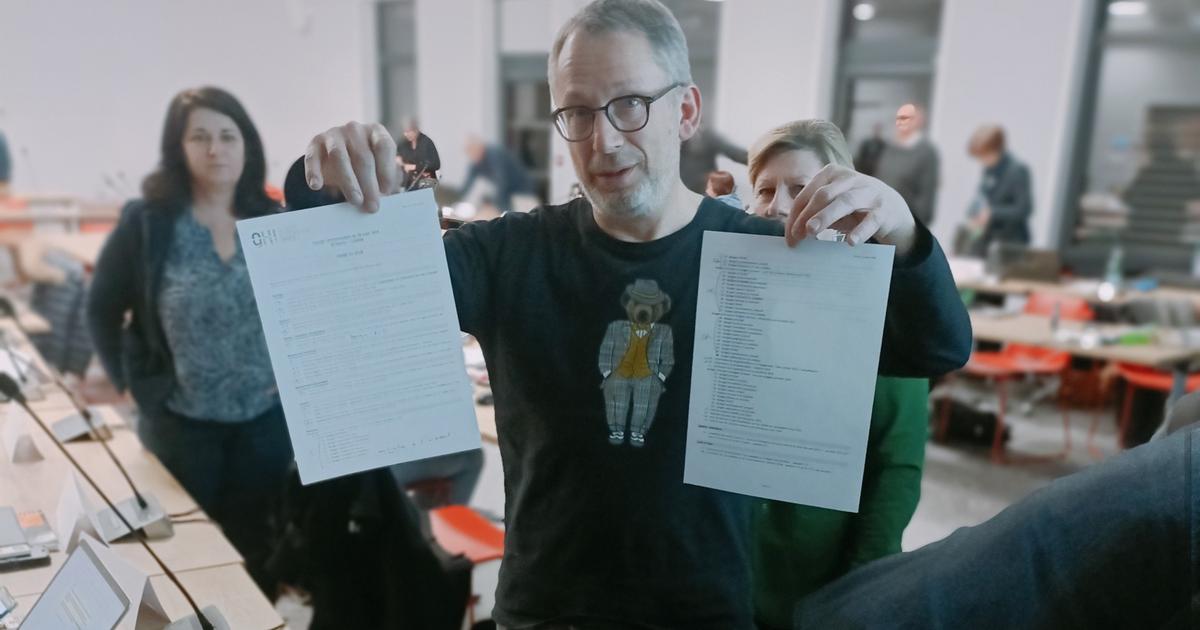Is there a relationship between the management of any current company and the organization of work in Nazi Germany?
It is the groundbreaking thesis of the historian Johann Chapoutot, professor of Contemporary History at the Sorbonne, who describes in his essay
Free to obey
(Alliance) how the Hitler regime launched a model of hierarchical organization based on the delegation of responsibilities and individual initiative.
According to Chapoutot, the Nazis defended a non-authoritarian conception of work, where the worker was no longer a subordinate but a "collaborator", a notion that may seem contradictory with respect to the illiberal character of the Third Reich.
This strategy of assigning tasks and defining competencies, opposed to the verticality of British or French capitalism at the end of the 19th century and relatively similar to the neoliberal culture of our time, was at the service of the German war economy and the extermination of millions of people, but ended up surviving the end of the conflict in 1945 and was given as an inheritance to post-war Europe.
The essay caused astonishment and some controversy when it was published in France in 2020, where it became a small publishing phenomenon.
“I discovered the similarities between the Nazi and neoliberal models by studying the work of German jurists who theorized about a new normative framework for the regime: they needed a new moral law, a new right that would authorize them to exterminate part of the population” , explains Chapoutot in a restaurant attached to the Sorbonne.
Among those theorists was Reinhard Höhn, who after the war became the father of modern
management
in Germany, where he was celebrated as a pioneer and became the subject of a tribute from the bosses shortly before he died in 2000.
For Höhn, the State should disappear and give way to new government agencies, less bureaucratic and more dynamic, in which autonomous and happy workers would work.
For Chapoutot, studying the labor organization of the regime allows us to delve into another even more thorny issue: that of the historical status of Nazism in Europe.
Was it an exception, an anomaly, a closed parenthesis?
“On the contrary, the Nazis are fully integrated into Western history.
His legacy is inscribed in our modernity.
In reality, the Nazis did not invent anything.
They took to the extreme logics that existed before their appearance and that remained after the disappearance of the regime”, answers the historian.
“Actually, the Nazis did not invent anything.
They took to the extreme logics that existed before their appearance and that remained after the disappearance of the regime”, says the author
The book dismantles many unfounded theses about Nazism.
Remember, for example, that Hitler was opposed to the idea of a strong state, revered in Prussian times, but that the
führer
considered a catastrophe for the German race.
“It is not the state that gives us orders, but we who give orders to the state,” he declared in 1934. “We tend to equate Nazism with fascism and Stalinism, where there was a strong, centralized state.
In reality, the Nazis believed themselves to be liberals, despite opposing all the principles of philosophical liberalism.
They supported the thesis of German nationalism on freedom, and linked the appearance of the State to the last days of Rome, when the mixture of races demanded a normative exoskeleton and a written and not oral law”, Chapoutot points out.
"The Germans of good race and healthy in spirit, on the other hand, managed to govern themselves without having to resort to him."
Against the reification diagnosed by Marxism, the Nazis promoted a kind of voluntary alienation of the worker.
“They promoted a new conception of subordination so that it would be accepted by the subordinate himself.
Nazism's projects were gigantic: they had to produce, expand, reproduce and prepare for war in record time.
The repression did not work.
It was necessary to obtain the consent, or even the adherence and enthusiasm of those subjected”, points out the author.
This ambition gave rise to an organization of work that highlighted its pleasant character, ventilation and hygiene measures, ergonomics and leisure activities, which perfected the precepts of the Mussolinian
dopolavoro
.
Historian Johann Chapoutot, author of 'Free to Obey', pictured in Paris in mid-September. Bruno Arbesu
In Germany, the single union created a division called Kraft durch Freude (something like “strength through joy”), convinced that production could only be sustained through an illusory sense of joy and well-being.
Vacations were organized to the infamous
resort
on the island of Rügen, concerts in the factories, sports activities, diet modules and courses to manage the workload, the ancestor of stress.
Any resemblance to the
happiness managers
that emerged in Silicon Valley and then invaded the world, in charge of offering yoga courses and installing foosball tables for employees, is purely coincidental.
The goal of Hitler and Goebbels, as they made clear in two speeches delivered during the party on May 1, 1933, was to end the class struggle and eliminate conflict in the workplace so as not to harm productivity.
“Against Jewish Marxism, which opposed work and capital, Nazi propaganda launched another image: the engineer and the worker shaking hands.
In the First World War they had fought together in the trenches, because they were part of the same nation and the same race.
Marxism threatened to destroy that unity,” says Chapoutot, who recalls the “trap” devised in the 1910s to dissuade the masses tempted by communism: to ensure that Nazism was also socialism.
“Hitler tells the workers that he is one of them.
The essay tiptoes over the most uncomfortable idea of how many it states: the parallelism between the destruction of jobs and the suppression of lives
Above all, the Nazis advocated social Darwinism, a society of winners and losers where the latter could only blame themselves for their failure.
To be an acceptable citizen, you had to not only belong to the right race, but also produce beyond your means.
“When this was not the case, the individual became a dead weight for society, which opened the door to his extermination.
The Nazis are the emblem of a dehumanization that is still valid today.
We are no longer people, but
human material
, an omnipresent expression in the language of the regime that was later renamed
human resources,
”says Chapoutot.
In the book, the historian tiptoes over the most uncomfortable idea of how many his passionate essay contains: the parallelism between the destruction of jobs and the suppression of lives.
In the interview, he admits that the massive dismissals of large groups in the era of industrial reconversion have something of a symbolic death.
And, in some cases, literally.
Chapoutot recalls the transformation plan of the former France Télécom in Orange, which resulted in 35 worker suicides in 2009. “Two years earlier, its CEO had stated that the 22,000 laid off, useless for a public company in the process of privatization, they should leave 'by the door or by the window'.
And that's what happened, ”he laments.
The author will end up admitting that his book has a political dimension:
Subscribe to continue reading
read without limits
Keep reading
I'm already a subscriber





/cloudfront-eu-central-1.images.arcpublishing.com/prisa/KRD2LI5IMVFG3IDDWM2ZAAPS2I.jpeg)



/cloudfront-eu-central-1.images.arcpublishing.com/prisa/S7ERVSCT4FUVX6R7TUVBDNTH5Y.jpg)



